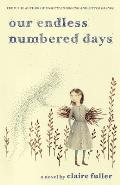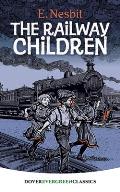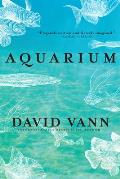 Our Endless Numbered Days
Our Endless Numbered Days tells the story of eight-year-old Peggy and her survivalist father, James, who inexplicably leave behind their London home and start a new life in an isolated cabin in the woods. Both stylistically rendered and deliberately paced, this book is a testament to the strength of the human spirit and the ability we all have to endure. Amy Stewart (author of
The Drunken Botanist) raves, "Like the wilderness into which Claire Fuller's characters disappear,
Our Endless Numbered Days is rigged with barbs and poisons, tricks and tragedies. It's weird and wild and sometimes terrifying, but it's also beautiful and heartbreaking and breathlessly alive." Claire Fuller's debut novel marks the arrival of a remarkable new literary talent, which is why we're thrilled to have it as our pick for Volume #52 of
Indiespensable.
÷ ÷ ÷
Shawn Donley: How did the story of Our Endless Numbered Days evolve?
Claire Fuller: It started when I was doing a creative and critical writing MA at the University of Winchester. They asked us to find something that had appeared in the news that we could use as the basis to start writing. I think it was about 2011. There was a teenager named Robin van Helsum, who said that he had come out of the woods in Germany. He claimed that he had lived in the woods for several years with his father, and his father had died. Everybody believed him. It took about nine months for them to realize that actually he had just run away from home. He fooled everybody for ages.
The story was interesting, and I thought, What if he really had lived in the woods? What would have taken him there? What would have made him come out at that moment? How would they have survived? That's where the idea came from.
Shawn: Music plays a significant role in the book, in particular "La Campanella" by Liszt. It serves as a bond between Peggy and her mother, who's a concert pianist. How did you choose which music to use?
Fuller: I'm not a pianist at all and certainly can't play anything. I listen to a lot of music, though. I wanted a piece of music that was going to be difficult for her to learn but fairly short so that the reader could get the gist of the piece over a whole scene. I also wanted it to be quite pretty, a nice piece of music. I did loads of online research, went on forums, chatted with pianists, and came up with that.
Shawn: I watched some YouTube clips. It's a beautiful piece of music.
Fuller: It's lovely, isn't it? Really lovely. The piano that Ute has is a Bösendorfer. I went on to the Bösendorfer website and they've got a video on there, which is the making of one of their concert pianos, and they set it to "La Campanella."
Shawn: It was destiny.
Fuller: That's what it felt like.
Shawn: Speaking of music, your book shares its title with an album by Iron and Wine.
Fuller: I'm a big fan of Iron and Wine. A massive fan. It was his music that I wrote the book to. I put all his music that I've got, 84 tracks or something, on a loop. I would just write with that in the background.
I had other titles, but I wasn't that happy with any of them. It just seeped in, I suppose, and it seemed very appropriate.
Shawn: James, the father in the book, is a member of a survivalist group called the North London Retreaters. Was survivalism popular in England in the 1970s?
Fuller: Not as far as I could tell. It was quite hard to find information about it. Survivalism was much more popular in America. It was something that came over from the U.S. That's partly why Oliver Hannington is there. That's who James learns it all from.
In my recollection of the '70s, people did talk about nuclear fallout shelters under houses. Not that I knew anyone who built one. I'd never heard of retreaters, and I'd certainly never heard of survivalists at that time. I think it was quite uncommon.
Shawn: Even though James has some less-than-desirable qualities, he is also quite resourceful. Is there someone in your life who had these qualities?
Fuller: The resourcefulness probably comes from my dad. When I was growing up, he built barns and we had chickens and pigs. He's very handy. He can turn his hand to all sorts of things. But I don't think I ever saw him skin a squirrel or anything like that.
I take after him a little bit in that respect. I'm quite a practical person.
Shawn: But not a survivalist.
Fuller: No. [Laughter] Although my children like to think I am. They say that if the end of the world comes, they're going to come here because they reckon that I'm going to know how to do it all. But I'm not sure that they're quite right.
Shawn: There's a great scene where Ute, the German concert pianist, enters the room and commands the attention of everyone present. It seems to me that it was her forceful presence that first attracted James. Do you think that's ultimately what pushed him away as well?
Fuller: That's a good question. I don't know if he felt he was pushed away. I think she pushed him away. She perhaps was looking for someone who she believed was going to be stronger than him, emotionally stronger. Somebody who was resourceful in a different way than he was. You could say he was resourceful in terms of surviving in the wild, but I'm not sure he was very resourceful emotionally.
He wasn't bothered about getting a job. He was happy to live off her. I think she wanted, in the end, a more emotionally mature man.
Shawn: There's a real authenticity to Peggy's voice. I feel like you were really able to capture the right mix of curiosity and fear. Was it a challenge for you to write from a young girl's perspective?
Fuller: I didn't find it too challenging. I think often when you write your first book, you never really imagine that it's going to be published, so you're just writing without thinking, Is this the right voice?
But when I first came across the story, obviously Robin van Helsum was a boy. I deliberately decided to make my main character a girl because I thought I would find that easier, having been an 8 year old girl, a 17 year old girl myself. Was it deliberate, the voice? I think it just kind of happened, really.
Shawn: Peggy also transfers some of her uncertainties to her doll, Phyllis. I would imagine this is common among children put in these traumatic situations. Did you do a lot of research into childhood abductions?
Fuller: I did quite a bit of research. I can't say I really came across anybody who made their doll into a real life person that they could talk to. But I read a lot of books about those kinds of abductions. It was pretty grueling, all that reading.
Lots of the research did make it into the book, but perhaps not the doll quite so much. I think I just wanted Peggy to have somebody that she could relieve her fears to when she was really young.
Shawn: Peggy's doctor feels that her memory might be compromised by Korsakoff's syndrome. I wasn't familiar with this disorder. Is it common among people who have endured a survival situation?
Fuller: I didn't really come across it because of that. I came across Korsakoff's syndrome because it's a vitamin deficiency. Whatever vitamin it is, it's one that Peggy wouldn't have found so easily in her diet. That's how I understood it. I don't know if it's common amongst people who have had restricted diets, but it is a recognized illness from a vitamin deficiency.
Shawn: Everyone here who's read this book is blown away by the ending. I won't give anything away, but I was wondering if you planned the structure of the novel in advance.
Fuller: No, not at all. I just started writing. It wasn't until I got to the middle of the book that I thought, Actually, James and Peggy are in the forest. I know that Peggy gets home, but I don't know how that happens. If it's just two characters the whole rest of the book, that's not going to be very interesting.
Reuben arrived to solve that issue. Then I thought, But no one else is supposed to be alive. So a structure happened and certainly the ending happened as a means to dig myself out of the holes that I'd written myself into.
I'm not a writer who plans at all. I come up with some characters and a situation and put them in it and see what they do.
Shawn: There's something to be said for not planning too much in advance.
Fuller: It surprises me and then hopefully that surprise comes across on the page, so there's more of a surprise for the reader.
Shawn: You started writing a bit later in life. What did you do for a living before?
Fuller: I worked in marketing for 22 years. I ran a small marketing company with my ex husband. We specialized in writing, but I didn't actually do any of the writing. I was doing sales and marketing for it. That I fell in to, and before that I did a degree in sculpture, in mostly wood and stone carving.
I hoped that I would be a sculptor, but that's actually even harder than being a writer, I think. [Laughs]
Shawn: Are there many similarities between sculpting and the writing process?
Fuller: A few. When I'm carving, say, a piece of stone, I'm often discovering something as I'm carving. Perhaps it's just my process — I write without knowing what the ending is going to be, and I carve in that way, too. I have some vague idea, but it develops as I do it.
I suppose the difference is that at least with carving, you do have a piece of stone to work. With writing it's just a blank page, isn't it? You have to create the words. You have to create the block of stone as well as carve it.
Shawn: Were there skills you picked up when you worked in marketing that have been an asset to your writing career?
Fuller: Perhaps there are beginning to be now, in that I'm not too scared of the marketing side of things. I'm actually really enjoying it. I like getting in front of readers and talking to people who might review the book. I like all those kinds of things, which I guess I did a lot of in a completely different industry.
And maybe because it was a writing company, even though I wasn't doing any writing, I was doing a lot of reading every day of other people's writing. It was about technology. It wasn't very interesting. I guess I was looking at words all day, so maybe that sunk in.
Shawn: You're the second debut novelist in a row we've selected for Indiespensable. What's been most surprising to you about the whole publishing process?
Fuller: Getting the book published in the first place. Finding an agent. The first book you write, you just write it. I certainly didn't plan. I thought, Well, it would be really great if I got an agent. Then I did. Then the book sold to eight countries, eight different publishers. It's been quite a roller coaster, except that there haven't really been any downs yet.
Shawn: Your book's being published in the U.S. by Portland based Tin House Books. The cover they did is beautiful.
Fuller: I love it.
Shawn: What has it been like working with different publishers in different countries?
Fuller: Really, there are just three that are kicking it off, in Canada, the U.K., and the U.S. The others are, I think, coming a bit later. It's been really interesting learning how different publishers work.
Obviously Penguin is massive and they have a whole process and a way of doing things, and that's how they do it. Whereas Tin House is much more flexible. My editor, Masie, and I will get on Skype every other week and have a chat. I can email her everything. It's not like I can't email Penguin, but it feels very different.
I had much less involvement with the cover with Penguin. They presented it as a fait accompli, and luckily, I really, really like it. With Tin House, they did two or three completely different versions and sent them to me and said, "Which do you like best?"
They went with the one that I chose. Maybe they liked it best, too, but it's just a different way of working.
Shawn: It's nice to be involved with some of those decisions.
Fuller: Yeah, it is. But I do understand. When I was at the marketing company, we worked with big technology companies. There's a process with big companies. They can't always be quite so flexible. But they have an awful lot of power... people listen to them more.
They've got me publicity in The Guardian and other national papers. I'm not saying Tin House won't be able to, but it's a different league. There are pros and cons to different sizes.
Shawn: In your book, Peggy is a big fan of The Railway Children, which is a classic children's book by E. Nesbit. What were some of your favorite books when you were growing up?
Fuller: Actually I read The Railway Children last year for the very first time. The thing I was really into was The Railway Children album, the vinyl, which is what she listens to.
Shawn: There was a movie as well.
Fuller: Yeah, I knew that very well, too. The record was the recording of the movie.
What else did I read? Sometimes quite odd books like John Wyndham's The Day of the Triffids. Do you know that one? I liked ghost stories but not horror when I was growing up. That came a bit later.
Shawn: What are some authors who have had an influence on you as a writer?
Fuller: Lots. I didn't start writing until I was 40, but up until then I was reading and reading and reading. I read a lot of David Vann. I really, really like him.
Shawn: He has a new book called Aquarium coming out in March.
Fuller: Yeah, luckily enough I got a preview copy, so I just read that. I loved it. Wallace Stegner, I really like for his landscapes. I suppose David Vann for his landscapes, too.
Shawn: What are you working on now?
Fuller: I just finished the first draft of another novel, which I sent to my agent and she's given me the green light. There's lots of revising to be done. It's about a woman called Ingrid who writes letters to her husband, but she doesn't give them to him. She hides them in his books. And her daughter goes looking for those letters.
Shawn: Is the process different now that you've already had a book published?
Fuller: I now have input from my agent at a very early stage. It's a great reassurance that someone else has read it and said, "Yeah, I think you should carry on with this." But also I think it's a little bit more scary, because I know all the things that could possibly go wrong, which I didn't know in the first book.
This time I'm thinking about, Oh, should I be worrying about structure? Should I be worrying about characterization and character arcs? All that kind of stuff, which is sometimes a bit inhibiting.
I was really determined to get the first draft done before Our Endless Numbered Days came out, because I thought if it was really successful, it actually might be hard to write something else. If it wasn't successful, it would also be really hard to write something else. So in that gap between it selling and publication, I've been writing quite hard.
Shawn: I'll be excited to see it when it comes out.
Fuller: Let's hope it does. [Laughs]